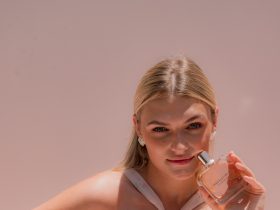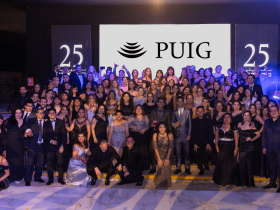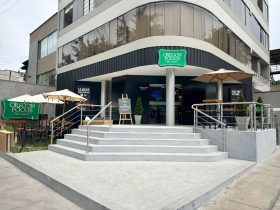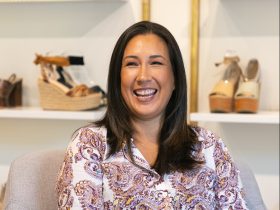No hay productos en el carrito.
La Fundación H&M apoya a trabajadoras de la confección en Bangladesh
La organización sin fines de lucro, Fundación H&M, está iniciando un proyecto a largo plazo para apoyar a las trabajadoras de la confección en Bangladesh, comenzando con las necesidades urgentes relacionadas con el COVID-19. Como primer paso, se están donando 12 millones de coronas suecas (1.3 millones de dólares) a WaterAid, CARE y Save the Children para brindar ayuda de emergencia a alrededor de 76,000 mujeres jóvenes, sus familias y miembros de su comunidad en Dhaka, además de alcanzar a 1 millón de personas con mensajes sobre el COVID-19 y prácticas de higiene. La Fundación H&M hace tambien un llamado a que otros muestren su apoyo.
“Apoyaremos directamente a las mujeres y sus familias con, por ejemplo, asistencia monetaria para alimentos, medicamentos y otras necesidades, crearemos conciencia y proporcionaremos pruebas de COVID-19, materiales de higiene e instalaciones para lavarse las manos. Esperamos ver a más donantes mostrar su apoyo de diferentes maneras «, dice Carola Tembe, Project Manager, Fundación H&M.

Bangladesh es uno de los países más densamente poblados del mundo, lo cual es un gran desafío cuando se trata de contener el impacto de una pandemia. La capacidad del sistema de salud se está poniendo a prueba y requiere de un considerable apoyo externo.
“Junto a la Fundación H&M abordaremos las necesidades inmediatas para una mejor higiene en la lucha contra el COVID-19, mientras avanzamos hacia mejoras sostenibles a largo plazo en los servicios de agua, saneamiento e higiene. Un enfoque integrado que es fundamental para construir sociedades sostenibles, inclusivas y resilientes ”, dice Cecilia Chatterjee-Martinsen, CEO de WaterAid Sweden.

Además de los impactos en la salud de la pandemia, la posterior cuarentena ha tenido un impacto económico devastador. Los esfuerzos de ayuda de emergencia se llevan a cabo de mayo a diciembre de 2020 con el objetivo de tener efectos positivos mucho después de eso.
“Proporcionaremos a las mujeres vulnerables pensiones de subsistencia y acceso a servicios de salud y apoyo por violencia de género, llegando también a miles de miembros de la comunidad. La donación de la Fundación H&M apoyará a las mujeres y sus comunidades en este momento de gran necesidad”, dice Merlijn van Waas, Jefe de Desarrollo Sostenible, CARE Nederland.
La iniciativa también incluye Save the Children, cuyos esfuerzos se centrarán en los hijos de trabajadoras de la confección afectadas por COVID-19 para garantizar sus derechos de protección y educación infantil.
«Los apoyaremos con soluciones que puedan garantizar la educación y protección de sus hijos contra la violencia o el abuso. En definitiva, ayudar a estos niños a construir una vida mejor ”, dice Onno van Manen, Director de País de Save the Children en Bangladesh.

Desde necesidades urgentes hasta apoyo a largo plazo
Además de la donación de ayuda de emergencia relacionada con el COVID-19, la Fundación H&M también está asumiendo un compromiso a largo plazo, comenzando en el otoño de 2020, involucrando a actores importantes de diferentes sectores para lograr un cambio sistémico duradero, equipando a las trabajadoras de la confección en Bangladesh para un futuro donde el trabajo se define por la automatización y la digitalización.
«Junto con diferentes socios, pondremos a disposición de las trabajadoras de la confección los esfuerzos de mejora, re-capacitación, alfabetización digital y emprendimiento con el objetivo de aumentar su futura empleabilidad», dice Carola Tembe, Gerente de Programa, Fundación H&M.
























914 Comments